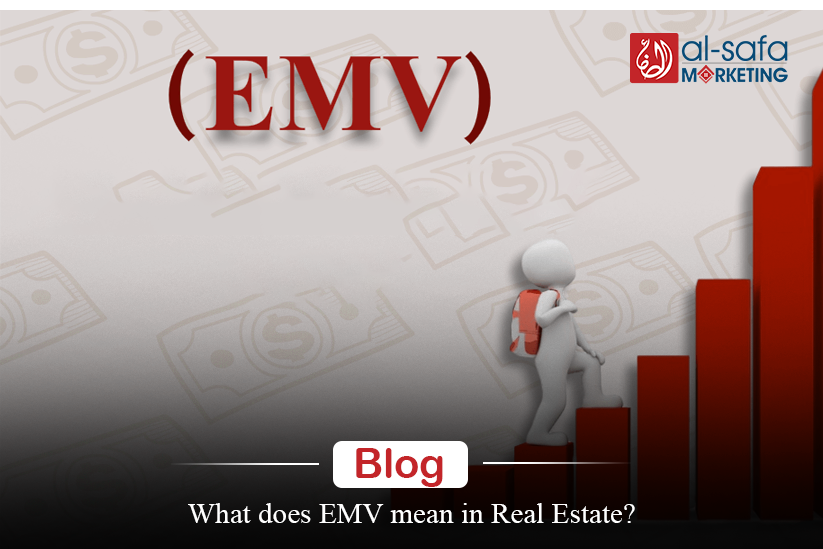What does EMV mean in Real Estate?
The Estimated Market Value (EMV) is a frequently used term in the real estate field. It describes an estimation of a property’s value. EMV is a very essential element in home foreclosure listings, as it provides a fair and correct assessment of the property’s worth.
The calculation of EMV takes into consideration a wide range of components, which include the location and condition of the property and the recent sales data of similar properties in the area.
The primary aim of EMV in the real estate company is to give buyers and sellers an estimated price range for selling a property. Lenders also rely on EMV to determine the maximum loan amount they are willing to provide for a property.
Because of a rapid rise in the number of foreclosed properties on the` market, the role of EMV in home foreclosure has become more important in recent years. EMV can help buyers and sellers negotiate the foreclosure process with confidence and ease by providing an accurate estimate of the property’s value. Understanding how EMV is calculated and its importance in home foreclosure listings is very important for one looking to buy or sell a foreclosed property.
How is EMV Calculated for Foreclosed Homes?
The process of calculating the Estimated Market Value is similar to the traditional way of doing home valuations. Although there are some factors to consider while calculating EMV for foreclosed homes.
EMV can be determined by considering and analyzing different data points, which include the location, size, age, and condition of the property, any improvements made to the property, and the data on recent sales of comparable homes in the area. For foreclosed homes, some additional factors should also be taken into consideration, such as the property’s occupancy status, the type of foreclosure, whether it is judicial or non-judicial, and the condition of the home at the time of foreclosure.
Sometimes, a professional appraiser is also hired to provide you with an accurate assessment of the value of the property. But sometimes, EMV is calculated by automated valuation models (AVMs). AMVs analyze data from different sources to estimate a property’s value.
It’s important to understand that EMV is only an estimation and not the precise or actual sale price of a foreclosed home. The final cost of a foreclosed property is obviously determined by the current condition of the market, the potential buyers’ interest level, and negotiations between the seller and buyer. However, EMV still remains an important element in home foreclosure listings because it gives a beneficiary starting point to determine a good market value for the property.
The Importance of EMV in Home Foreclosure Listings
Estimated Market Value (EMV) is critically important in home foreclosure listings for both sellers and buyers.It is necessary for guiding negotiations and pricing decisions, as it is the benchmark used to determine the fair market value of a foreclosed property.
EMV provides buyers with an estimate of the worth of the property, which helps them make a good decision while making an offer. EMV can help buyers decide whether the asking price is reasonable or whether they need to negotiate a better deal.
EMV provides sellers with a helpful starting point to price the property. To attract a number of potential buyers and ensure a quick sale, listing a home at or near EMV can be really helpful.
Moreover, the lenders also use EMV to determine the maximum amount they are ready to lend on a property, which is important for buyers who need financing.
EMV is really important for both people who want to buy or sell homes that are being foreclosed. It gives them a good idea of how much the property is worth. Knowing about EMV helps people make smart choices when they’re buying or selling a foreclosed home.
Factors That Affect EMV in Foreclosure Listings
There are many things that can change how much a foreclosed home is worth. These things are used to figure out the Estimated Market Value (EMV) when selling it. Here are some important things that affect the EMV:
1. Condition of the property:
If the foreclosed home is in bad shape or needs a lot of repairs, it will be worth less than a home that is in good condition.
2. Where it is located:
The location of the foreclosed home matters too. Homes in nice areas, with good schools and nearby amenities, will be worth more than homes in less desirable areas.
3. The real estate market:
The state of the local real estate market also affects the EMV. When there are many buyers and high demand for homes, the EMV goes up. But if there are few buyers and low demand, the EMV goes down.
These factors play a big role in determining how much a foreclosed property is worth when it is put up for sale.
EMV Tips for Foreclosure Listings
If you want to buy or sell a foreclosed home, knowing the Estimated Market Value (EMV) can help you make better decisions. Here are some tips for using EMV in home foreclosure listings:
1. Negotiate a fair price:
As a buyer, use the EMV as a starting point for negotiations. If the EMV seems high, consider the property’s condition, local market conditions, and recent sales data to figure out a fair price.
2. Assess investment opportunities:
If you’re an investor, use the EMV to evaluate potential investments. Look for properties with low EMV values that can be fixed up or improved to increase their worth. Consider repair costs, market conditions, and potential resale value.
3. Identify risks:
Whether you’re a buyer or investor, the EMV helps you spot potential risks. A low EMV might mean the property is in bad shape, in a less desirable location, or has other issues affecting its value. Think about the property’s condition, market conditions, and potential repair expenses to assess the risks.
Understanding EMV in home foreclosure listings can assist you in making informed decisions when buying or selling a foreclosed property. When evaluating the potential risks associated with property investments, seeking guidance from a reputable real estate marketing company can be invaluable. Our real estate marketing company offers expert insights into market conditions.
Conclusion:
To summarize, the Estimated Market Value (EMV) plays a significant role when dealing with foreclosed homes. It represents the property’s estimated worth, considering factors like its condition, location, and recent sales data. Knowing EMV helps buyers and sellers make better choices and negotiate fair prices. However, estimating EMV for foreclosed homes can be tough due to incomplete or incorrect data, varying property conditions, and changes in the local market.
That’s why it’s important to seek professional advice and consider other factors in the foreclosure market. By using EMV and considering other aspects, you can spot potential risks, evaluate investment opportunities, and make well-informed decisions when buying or selling foreclosed homes.
Also Read: Should I Buy A House Now Or Wait?



